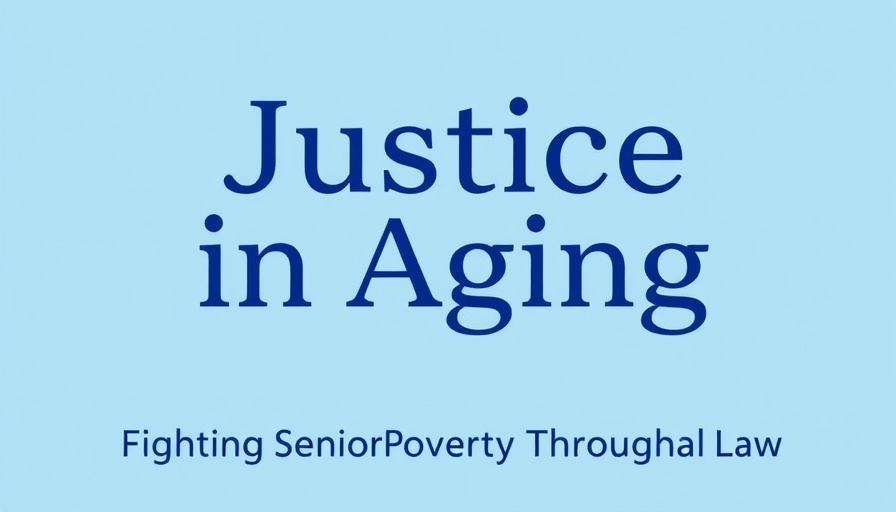
Changes to Medicare: How New Rules Affect Seniors
The landscape of Medicare is shifting, and the implications for seniors, especially immigrants, are profound. Recent changes under the H.R. 1 legislation have left many lawfully present immigrants vulnerable, stripping approximately 100,000 noncitizens of their Medicare eligibility. This development has sparked concern among advocacy groups who argue that such restrictions violate the fundamental principle of equal access to healthcare. This article explores the ramifications of these changes and what seniors should know moving forward.
FOIA Request for Transparency
Justice in Aging, alongside notable advocacy organizations, has filed a Freedom of Information Act (FOIA) request to the Social Security Administration (SSA) and the Centers for Medicare and Medicaid Services (CMS). The goal is simple yet crucial: to gather records that clarify how these eligibility restrictions will be implemented. As these restrictions went into effect on July 4, 2025, lack of guidance from SSA and CMS has created an environment ripe with confusion and uncertainty for many seniors. Having direct access to how these changes will play out is essential for those affected.
New Opportunities: Rural Health Transformation Fund
On a more optimistic note, the Centers for Medicare and Medicaid Services (CMS) has announced a new opportunity for states to apply for funding through the Rural Health Transformation Program (RHT). With a budget of $50 billion allocated to this initiative, states are encouraged to seek funds that not only support rural hospitals but also integrate community-based services crucial for older adults. The deadline for state applications is November 5, 2025, with approvals expected by December 31, 2025. Advocates are urging states to include diverse services in their funding proposals, emphasizing the importance of home-based care.
Supporting Vulnerable Communities
In addition to the Medicare changes, resources from Justice in Aging highlight the ongoing need to support vulnerable populations, including older LGBTQ+ adults and those transitioning out of incarceration. Recent issue briefs have been published to raise awareness of the specific barriers these individuals face in accessing essential services. It is vital that seniors educate themselves on these subjects to ensure they are aware of available resources that can offer support during transitions.
The Importance of Advocacy
As current events illustrate, advocacy plays a crucial role in shaping healthcare policies. The changes to Medicare reflect broader societal challenges in the accessibility of health services for marginalized groups. The push from organizations like Justice in Aging will continue to be significant in holding systems accountable and ensuring that equitable healthcare remains a priority in policy discussions.
For seniors and their families, understanding these developments and engaging with advocacy efforts is vital. Staying informed can empower individuals to navigate the complexities of current healthcare policies effectively. By voicing concerns and supporting inclusive initiatives, seniors can facilitate changes that directly improve their lives as well as those of their peers.
Call to Action: To learn more about how you can advocate for equitable healthcare options and stay updated on the latest Medicare developments, follow news from Justice in Aging and related organizations. Your voice matters.
 Add Row
Add Row  Add
Add 




Write A Comment